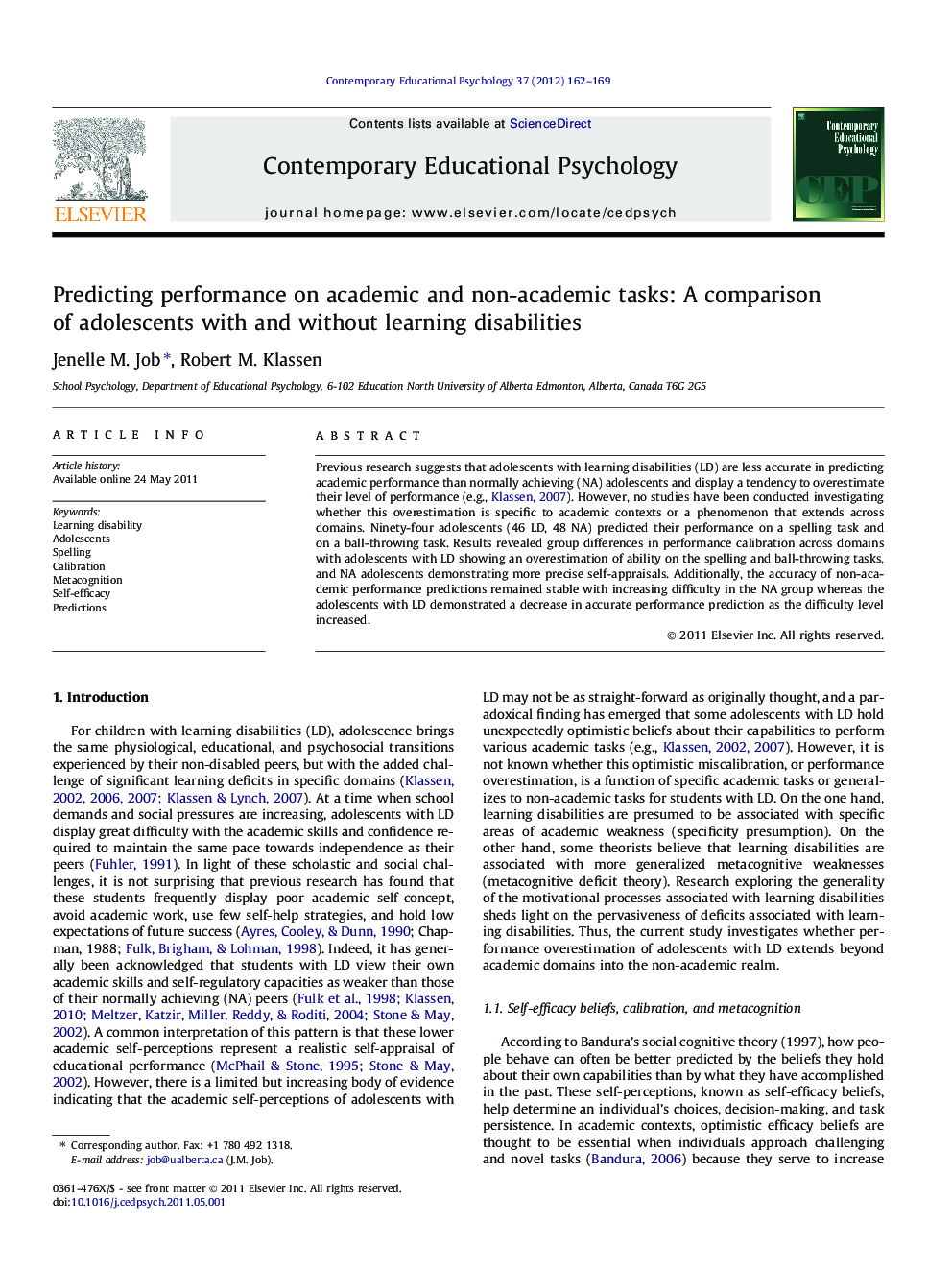| Article ID | Journal | Published Year | Pages | File Type |
|---|---|---|---|---|
| 352710 | Contemporary Educational Psychology | 2012 | 8 Pages |
Previous research suggests that adolescents with learning disabilities (LD) are less accurate in predicting academic performance than normally achieving (NA) adolescents and display a tendency to overestimate their level of performance (e.g., Klassen, 2007). However, no studies have been conducted investigating whether this overestimation is specific to academic contexts or a phenomenon that extends across domains. Ninety-four adolescents (46 LD, 48 NA) predicted their performance on a spelling task and on a ball-throwing task. Results revealed group differences in performance calibration across domains with adolescents with LD showing an overestimation of ability on the spelling and ball-throwing tasks, and NA adolescents demonstrating more precise self-appraisals. Additionally, the accuracy of non-academic performance predictions remained stable with increasing difficulty in the NA group whereas the adolescents with LD demonstrated a decrease in accurate performance prediction as the difficulty level increased.
► Across domains, adolescents with LD showed an overestimation of ability. ► Increases in task difficulty resulted in greater performance miscalibration. ► Overly optimistic efficacy may reflect a lack of metacognitive awareness. ► Awareness of skill deficits and task demands may improve performance predictions and calibration.
